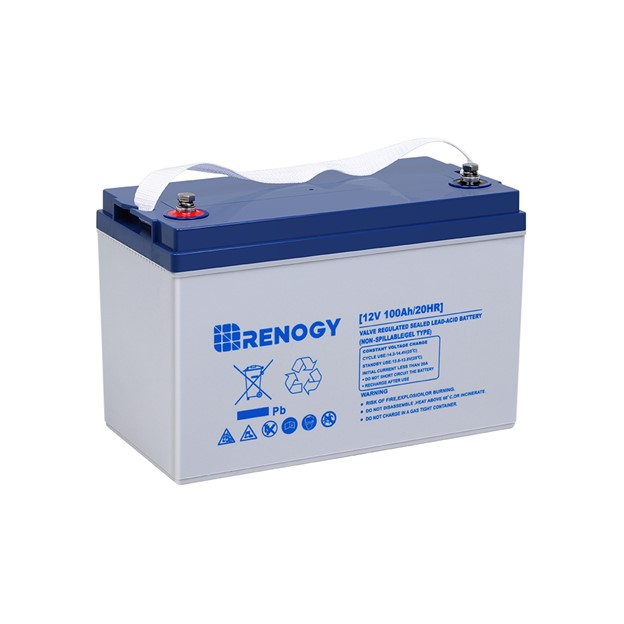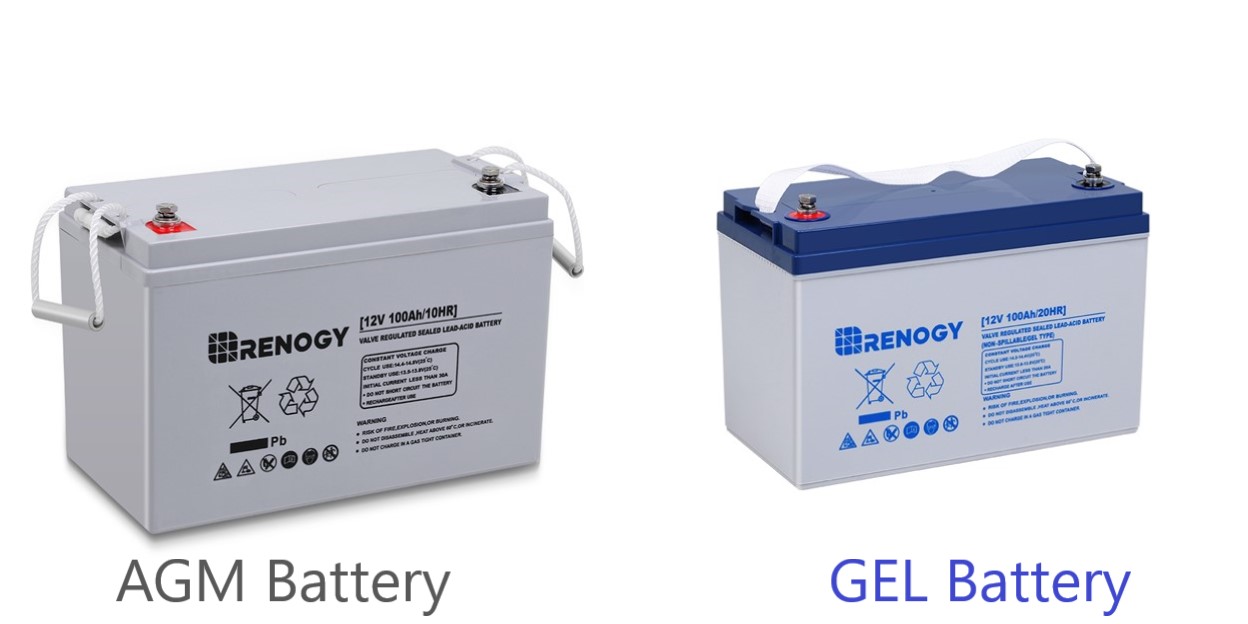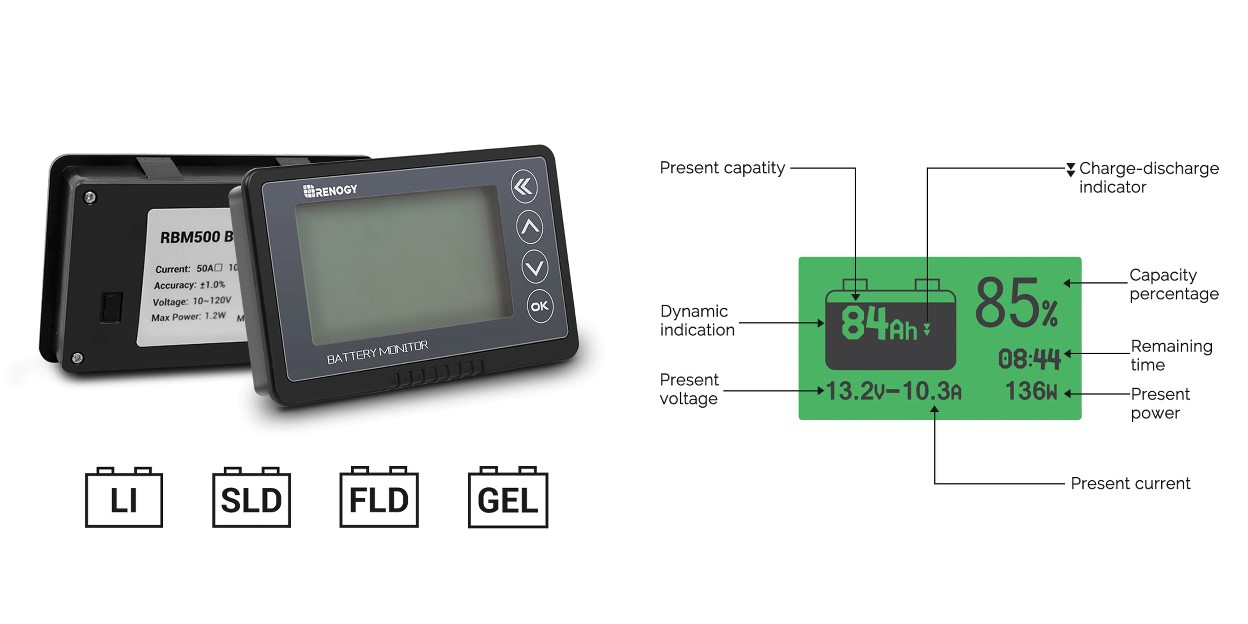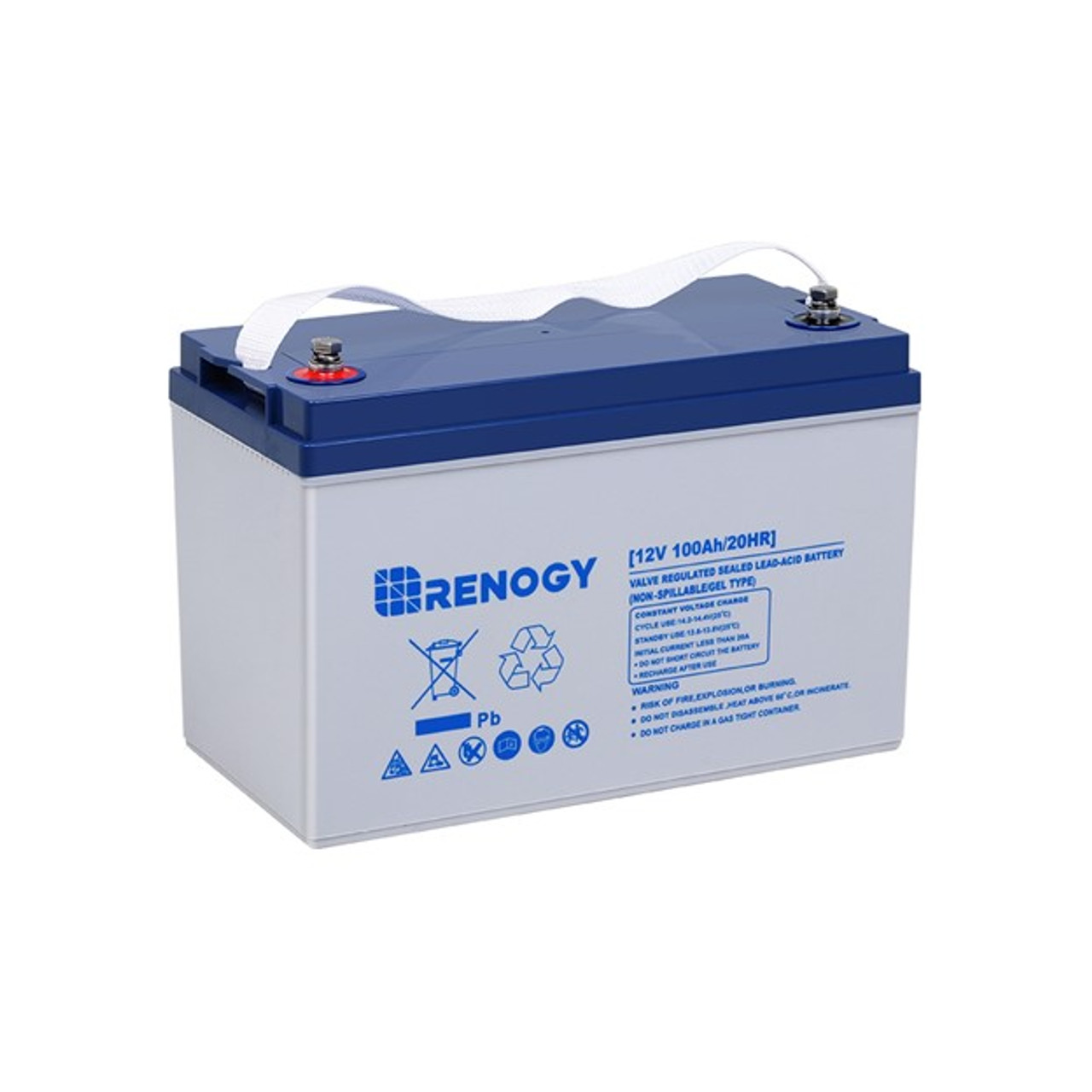What to Know about Gel Batteries
Should I purchase a gel battery for my solar installation?
When shopping for a battery bank for your solar installation, there’s a lot to consider, including upfront and lifetime costs, cycle life, voltage, maintenance, and efficiency. Many people often think of either choosing between cheap, widely-available flooded lead acid batteries and highly efficient lithium batteries. However, there’s another option that is suitable for many solar installations: sealed lead acid batteries. Sealed lead acid batteries, which include gel and absorbed glass mat batteries, store 10 to 15 percent more energy than flooded lead acid batteries and charge up to four times faster. Although not as efficient as lithium batteries, they’re also not as expensive. There’s some important differences to note between AGM and gel batteries as well, but for many people gel batteries are a great option. Are they the right battery for you?

What are deep cycle batteries?
Deep cycle batteries are the recommended battery choice for solar installations. They look similar to car batteries, but in contrast to car batteries which only provide short bursts of energy, deep cycle batteries are designed to provide sustained energy over a longer period of time, making them perfect for solar applications.
What should I consider when deciding on a battery bank?
When shopping for batteries for your solar installation, there’s some different factors to consider: price, voltage, capacity and cycle life.
Price: It’s important to consider both the lifetime and upfront costs for batteries, as you will have to replace lead acid batteries before you will need to replace a lithium iron battery. You’ll also need to do more maintenance on a flooded lead acid battery.
Voltage: Be sure to check the voltage of the battery bank to ensure it is compatible with your panels and the rest of the system, particularly your solar panels. Panels typically come in either 12V and 24V options. Most RV’s and boats typically use 12V battery banks, so people usually stick with the 12V panels.
Capacity: Battery capacity is important because it measures the amount of energy you can store. If you need to power certain appliances for longer periods of time, you'll need more batteries in your battery bank to meet those energy needs. Capacity is measured in total amp hours.
Cycle Life: This specifies the number of discharge and charge cycles a battery can provide before the capacity drops below the rated capacity. This varies sharply from technology to technology and is measured in the number of cycles.
What are flooded lead acid batteries?
Flooded lead acid batteries contain a liquid electrolyte. The liquid in these batteries must be carefully measured and maintained in order for the battery to perform properly and live up to its advertised shelf life.
What are sealed lead acid batteries?
Sealed lead acid batteries look similar to the flooded version, but there is no access to the inside compartment. This means you do not have to add water to top it off. With added convenience comes an added price and they are typically more expensive than flooded lead acid batteries. However, they also have a much longer cycle life. Within the family of sealed lead acid batteries are two types: absorbed glass mat (AGM) and gel batteries.

What’s the difference between absorbed glass mat and gel batteries?
Gel batteries, which use silica to stiffen the electrolyte solution in the battery, tend to have lower output than absorbed glass mat batteries. They also can’t handle as much current, meaning they take longer to recharge. However, gel batteries have a greater lifespan than AGM batteries.
Absorbed glass mat batteries contain a special glass separator that wicks the electrolyte solution between battery plates. As the battery operates, electrolyte is transferred from the glass mat to battery plate. Both AGM and gel batteries have a low rate of self-discharge and are both safe to use in non-ventilated areas. They can also both be mounted in any position without decreasing the effectiveness.
How do I choose between absorbed glass mat and gel batteries?
To select the right battery option for you, consider the following:
• AGM Batteries
◦ Can be cheaper than gel batteries
◦ Can be recharged easily, up to five times faster in some cases
◦ Perform well in temperatures below 32 degrees
• Gel Batteries
◦ Lower power capacity
◦ Have a longer lifespan than AGM batteries
◦ Does well in warmer temperatures, doesn’t perform well in below freezing temperatures
So if you’re living in a warm environment and want a long lasting battery, gel batteries may be right for you.
Can I wire different battery types and sizes together?
We recommend wiring batteries of the same type and amp hour rating. So if you purchase a gel battery, all the batteries in your battery bank should be gel batteries. This will limit any efficiency loss due to having different batteries.
How many batteries will I need?
The amount of battery storage you need is based on your energy usage. Energy usage is measured in kilowatt hours. For example, if you need 500 watts for 8 hours per day, then your energy usage is 4kWh per day. To size a system that will best fit your needs, we recommend making a list of all the devices you plan on running. Get the wattage information, or the amps and volts of the product, and provide an average run time per device. The Renogy solar panel calculator is a great tool that makes it a quick and easy process to help determine your specific needs.

How do I monitor my battery and know when it should be recharged?
Remember, you typically shouldn’t drain your battery past 50%. To accurately check this, you can use a battery monitor. A depleted battery will read 11.8-11.5 volts (30-10%) and a fully charged battery reads 12.8.volts. A battery drained to 50% will read 12.1 volts.
Conclusion
Gel batteries are a great option if you have a moderate budget, are looking for something that’s lower maintenance, and charge up to five times faster than flooded lead acid batteries. Add the fact they perform best in warm environments and you have a great battery option for your solar installation. Of course, at Renogy, you will not only find gel batteries, but also other types of batteries such as the 12 volt deep cycle battery, 48v battery, and marine battery.








